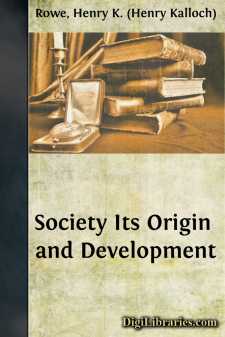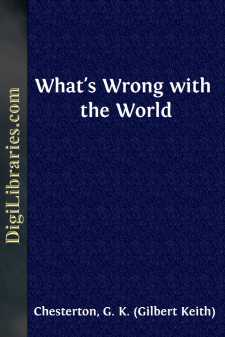Categories
- Antiques & Collectibles 13
- Architecture 36
- Art 48
- Bibles 22
- Biography & Autobiography 813
- Body, Mind & Spirit 142
- Business & Economics 28
- Children's Books 15
- Children's Fiction 12
- Computers 4
- Cooking 94
- Crafts & Hobbies 4
- Drama 346
- Education 46
- Family & Relationships 57
- Fiction 11828
- Games 19
- Gardening 17
- Health & Fitness 34
- History 1377
- House & Home 1
- Humor 147
- Juvenile Fiction 1873
- Juvenile Nonfiction 202
- Language Arts & Disciplines 88
- Law 16
- Literary Collections 686
- Literary Criticism 179
- Mathematics 13
- Medical 41
- Music 40
- Nature 179
- Non-Classifiable 1768
- Performing Arts 7
- Periodicals 1453
- Philosophy 64
- Photography 2
- Poetry 896
- Political Science 203
- Psychology 42
- Reference 154
- Religion 513
- Science 126
- Self-Help 84
- Social Science 81
- Sports & Recreation 34
- Study Aids 3
- Technology & Engineering 59
- Transportation 23
- Travel 463
- True Crime 29
Recent Developments in European Thought
by: Various
Categories:
Description:
Excerpt
I
GENERAL SURVEY
F.S. MARVIN
We are trying in this book to give some impression of the principal changes and developments of Western thought in what might roughly be called 'the last generation', though this limit of time has been, as it must be, treated liberally. From the political point of view the two most impressive milestones, events which will always mark for the consciousness of the West the beginning and the end of a period, are no doubt the war of 1870 and the Great War which has just ended. From 1870 to 1914 would therefore be the most obvious delimitation of our study; and it is a striking illustration of human paradox, that a great stage in the growth of unity should be marked by two international tragedies and crowned by the most terrible of all.
Nearly coincident with the political divisions there are important landmarks in the history of thought. During the 'sixties, while the power of Prussia was rising to its culmination in the Franco-Prussian War, the Darwinian theory of development was gaining command in biology. To many thinkers there has appeared a clear connexion between that biological doctrine and the 'imperialism', Teutonic and other, which was so marked a feature of the time. In any case 'post-Darwinian' might well describe the scientific thought of the age we have in view.
Industrially the epoch is as clearly defined as it is in politics and science. For in 1871, the year of the Treaty of Frankfort, an act was passed after a long working-class agitation, assisted by certain eminent members of the middle class, legalizing strikes and Trade Unions. And now at the end of the war, all over the world, society is faced by the problem of reconciling the full rights, and in some cases the extreme demands, of 'labour', with democratic government and the prosperity and social union of the whole community. This is the situation discussed in our seventh and eighth chapters.
In philosophy and literature a similar dividing line appears. In the 'sixties Herbert Spencer was publishing the capital works of his system. The Principles of Psychology was published in 1872. This 'Synthetic Philosophy' has proved up to the present the last attempt of its kind, and with the vast increase of knowledge since Spencer's day it might well prove the last of all such syntheses carried out by a single mind. Specialism and criticism have gained the upper hand, and the fresh turn to harmony, which we shall notice later on, is rather a harmony of spirit than an encyclopaedic unity such as the great masters of system from Descartes to Comte and Spencer had attempted before.
In literature also the dates agree. Dickens, most typical of all early Victorians, died in 1870. George Eliot's last great novel, Daniel Deronda, was published in 1876. Victor Hugo's greatest poem, La Légende des Siècles, the imaginative synthesis of all the ages, appeared in the 'seventies. There have been many writers since, with Tolstoi perhaps at their head, in whom the fire of moral enthusiasm has burnt as keenly, nor have the borders of human sympathy been narrowed. Yet one cannot fail to note a less pervading and ready confidence in human nature, a less fervent belief that the good must prevail if good men will only follow their better leading.
Here then is our period, marked in public affairs by a progress from one conflict, desperate and tragic, between two of the leading nations of the West, to another and still more terrible which swept the whole world into the maelstrom; and marked in thought by a certain dispersion and depression of mind, a falling in the barometer of temperament and imagination, but also by a grappling with realities at closer quarters. No wonder that some have seen here a 'tragedy of hope' and the 'bankruptcy of science'.
But it must be noted at once that these obvious landmarks, though striking, are in themselves superficial. They require explanation rather than give it, and in some cases an explanation, much less tragic than the symptom, is suggested by the symptom itself. We may at least fairly treat them at starting simply as beacon-hills to mark out the country we are traversing. We have to go deeper to find out the nature of the soil, and travel to the end to study the vista beyond.
In making this fuller analysis of man's recent achievement, especially in the West, the first, and perhaps ultimately the weightiest, element we have to note is the continued and unexampled growth of science....






















